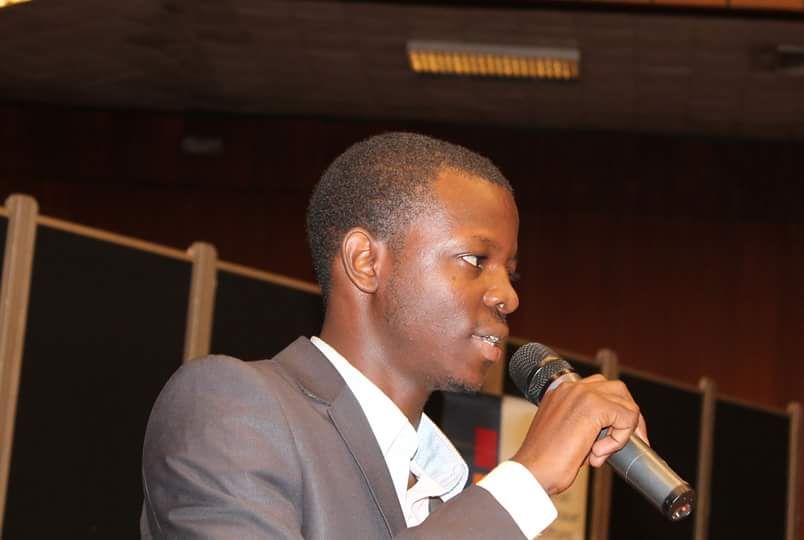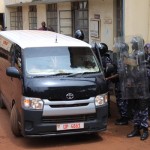By: Ivan Okuda
Happy New Year friends! I didn’t have a good night. It happens when one is bothered. I kept waking up to reflect on Mr Andrew Mwenda’s recent anti Besigye campaign (that’s what it appears) and arrived at the conclusion that he’s being grotesquely unfair to not only Besigye but his own readers to whom he supplies what some consider half-truth (about the history of NRM/A ascension to power and how that’s his measure of Mr Museveni’s superior organisational skills.) I have talked to actors close to the happenings then that are persuading in the narrative that Museveni and group had actually been defeated and were starting to push for negotiations with Obote through Mwalimu Nyerere.
He knows of a letter from NRA/M to Mzee Nyerere asking him to get the two sides talking peace and power sharing. This is around 1984 by which time the NRA had essentially been defeated. Mr Museveni’s ascension to power wasn’t a military victory per se but partly attributable to luck (according to those who know what happened) thanks to the Obote centre internally failing to hold because of his own wanting leadership skills, ethnic contradictions in the army and his defence anchor man, Paulo Muwanga growing frustrated and feeling bogged down by those contradictions). Had Obote managed those contradictions better, the way Mr Museveni has managed his regime’s contradictions, our history would be different. Museveni didn’t even defeat Obote. He was thrown out by the Lutwa group which was easier fodder for the NRA.
Had Lutwa not over thrown Obote, would our history be different? Of course you have to give it to Museveni for keeping his forces intact till the end of the civil war (which they call a liberation struggle today). Be that as it may, Mwenda can’t compare Museveni who rose to power after half a decade of bloodletting to Besigye who’s seeking power by way of elections (civil means). Had Besigye picked guns and for 15 years failed to get power, then a comparison of the two Men’s organisational skills would suffice. In any case you can assess Museveni’s organisation skills by the 1980 election. How many candidates did UPM field? How many won and how? One. Dr. Crispus Kiyonga (partly because of the Democratic Party’s candidate death in that constituency, blamed on the UPC). So where is organisational genius of Mr Museveni in 1980? Even in post 1996 electoral period that organisational genius can be doubted to the extent that his electoral victory has been a result of a cocktail of electoral irregularities that can’t be wished away by the dishonest wave of the hand argument, “there’s no perfect election.” No one said there is or expects one. What we have here is for all intents and purposes an all-out war to get the incumbent re-elected at all costs including to human life and the economy. It’s the state versus his opponent.
He’s a better organiser no doubt of his military apparatus, the reason he pushed through that civil war to the end even after Col. Ogole flashed them to the Rwenzoris and why he continues to hold power using military might with a clever facade created to disguise the same using such institutions as Parliament which as his son in law Odrek Rwabogo in his latest write up innocently admitted, exercises delegated power from the military. It’s unfair though to use that as the basis of assessing the organisational skills of a man who seeks power through elections.
Even then let’s look at African countries with the same situation (of leaders entrenched in power and keeping it using the state that they hijack and personalise). Angola, Zimbabwe, Egypt under Mubarak, Tunisia under Ben Ali, Libya under Gaddafi (though he didn’t exactly have presidential polls), Kenya under Moi, Rwanda under Kagame, Sudan under Bashir, Congo Brazzaville. under Dennis Ngueso. Are all the opponents of these leaders just unserious or the pattern is evidence of how difficult it is to dislodge dictatorship through the ballot? Is Besigye expected to be super human? I have shared my view on elections with Dr. Besigye and why he keeps taking part in them aware the ground is not levelled. I am not persuaded by his explanation of using elections to freely reach out to his supporters and as a stepping stone to causing change. I can’t pretend to know an alternative to his approach but can only take solace in the fact of life that human beings can’t stop trying their best.
Mwenda then wonders how and why Besigye doesn’t translate his popular support into an uprising (akin to Arab spring?) to defend his claimed victory. Certainly every country has a context but what’s true also is that in the recent few years of mass popular action causing regime change (even in Burkina Faso), that change has been more spontaneous than as a result of the ingenuity of Organisation of those opposed to dictatorship. When will Uganda’s time come, if ever it will? No one can tell as indeed no one predicted the Arab spring or Burkina Faso uprising that saw Blaise Campore exit the stage. So when Besigye chose to exit NRM in 1999/2000, he wasn’t assigned a time table by Mwenda or any one within which to have caused change. He’s only human, he’s subject to many obstacles in his ambition.
Mwenda as a business man should know this better. It would be unfair for anyone to accuse him of being a bad businessman simply because the Independent hasn’t out sold/ shone Monitor, New Vision, Observer and Red Pepper for almost a decade now yet Andrew and team do their best to be the best in the market. The dynamics are complex. It’s unrealistic to expect timelines in political struggle because of the many obstacles. Mwenda, like some in the NRM, has chosen to take issue with Besigye’s perennial candidature. Friends in the NRM are now turning on default settings and using that to justify Mr Museveni holding onto power. This is flawed.
- There is no single political party in Uganda which under their constitutional framework limits how often one can run for office.
- Our Constitution doesn’t limit ambition especially in respect to how many times one can contest for office. It does, however, establish limitations on when one can run for president (age: 35-75). So legally and even morally, there is no point in Mwenda’s charge against Besigye’s unending candidacy. It’s a defective charge no prosecutor worth the name can present even in a kangaroo court. So both Mr Museveni and Dr. Besigye are ambitious. One wants to be president. The other wants to retain power. Here’s the catch. For Mr Museveni, as we saw in 2005, that ambition can be achieved, in his outlook and style of politics, by bribing MPs with Shs5 million to amend the rules (read Constitution). We are set for a similar scene before 2021, where our Constitution is reduced to vegetables on the market to suit the ambition of one man and his entourage. What does Besigye do to attain his objective? Does he amend the rules? The Forum for Democratic Change can tell us. In my humblest view this is what should be concerning Mwenda; how the two men get to their destination. Even more, for a country with a young population such as ours, it’s dangerous to create the impression that being ambitious is harmful and demonise the same rather than applaud it.
We should however focus on how ambition is achieved. If you are going to tinker with the supreme law of the land by paying off/intimidating and black mailing legislators to amend the rules of the game and worse still ring fencing positions of power as we saw with the ill treatment of Mr Amama Mbabazi for committing the single most heinous crime in NRM’s unwritten penal code (of challenging the supreme leader) then your approach should concern all because it’s everything barbaric. Examples across historical time and geographical space are overwhelming on how many times some politicians stood for office and eventually got it but also how rulers stuck to power at all costs and the damage they left behind. Which page of history do we prefer to read? Why then is Mr Mwenda more concerned with a man seeking power severally than one who seeks to retain it at all costs? The very last point: Mr Mwenda also falls victim of a rather reductionist approach that looks at the tragedy of failed governance of Uganda from and through the prism of Besigye failing to get power.
How so? Besigye has no contract with anyone to dislodge Mr Museveni, except perhaps, with his own conscience and the chamber of ambition in his heart. The wanton injustice manifest in land grabbing aided, abetted and condoned by the state, the tragedy that’s UPE (see: Uganda’s Leap Forward—for dropout rates analysis), the failed health care system ( see: WHO country reports), the erosion of decorum in politics that’s now transactional with Mr Museveni as chief deal maker and State House the headquarters of the same, the systemic incompetence and endemic graft of and in government, the glaring regional imbalance in our 30 years of what Andrew (with compelling evidence) calls a tremendous story of economic transformation (some argue this isn’t entirely because of Mr Museveni’s ingenuity and this has happened in spite of and not because of him). I am still studying the evidence for an pro before forming an opinion on this. May be those figures would be rosier with better leadership). All these and more. Let’s reflect on them. Let’s be honest. Let’s listen to our hearts. How can they be reduced to one man and how he’s failed to get power? Or a party (I must confess I despise the FDC and think if they got power they’d be worse than NRM), and how it’s failed to field a winning candidate since 2001? Shouldn’t Mr Mwenda instead be concerned that Ugandans wallowing in abject poverty (over five million are starving as we cross the year) and the gaps in social service delivery are not doing more to ameliorate their situation? This to me is a more tempting area of scholarly interest. This is about Uganda. It can’t be about Besigye who tomorrow can pass on or choose to retire. He’s only a flag bearer of these frustrations and may be like any other shrewd politician using them as a platform for his own program of power acquisition).
Once I sat in Mr Mwenda’s lovely car (on the day of the February 2016 election actually). It was a Friday. He’d just hosted the 93.3 KFM Hot seat and offered to give me a lift (from where I would get a taxi home). But Mr Mwenda true to his character got me absorbed in this discussion about Uganda and our state of affairs so much that I wanted to listen to him more and more. When I was in upper primary school I would run home after 5pm class to listen to Andrew Mwenda live. I wouldn’t miss his column (without mincing words) and (24/7). His views appealed to me as a child and he’s one of if not the reason I got interested in things journalists do so to this day I hold Andrew in really high esteem regardless of the many charges leveled against him by mainly social media investigators, prosecutors, judges and executioners).
We all have weaknesses. Anyway, I ended up sitting in that car till he hooted at the gate of a prominent lawyer friend of his at whose home we had diner and continued discussing Uganda till he dropped me in Kololo and he proceeded to Mr Sudhir’s home. In those hours however, Mr Mwenda spoke his heart. The next president of Uganda, he opined, “should come from the east or north.” “Why,” I asked. He explained how he had traversed the country during campaigns and appreciated the disparity between the East, North vs the rest of Uganda. There’s lots of evidence on this (see: Are our children learning? —-by Uwezo/Twaweza). Of course Andrew has also expressed his appreciation for the recovery efforts in the North with infrastructure as a case in point but by and large, if he can arrive at the conclusion that perhaps Uganda’s next president should come from the east or north (as a rudimentary distribution of prosperity mechanism, I suppose), then surely he too appreciates that the rosy statistics he cites don’t tell the entire story of the situation of the Ugandan. (We can return to this another time). I know that leading economists like Jeffrey Sachs are inviting peers to reflect on the use of the measure of development of countries based on GDP and conventional statistics.
Therefore, with all these problems afflicting Uganda, how can any analyst be bitter that a party keeps fronting a failing candidate for 15 years? Shouldn’t that frustration instead be channeled to asking why with all these issues at hand, Ugandans (not just Kizza Besigye) are not doing enough to help their situation? And more importantly how meaningfully change can be attained in the face of dictatorship taking into account that (as examples above show across Africa), taking on the state is no walk to a massage parlor. It’s tough. It takes time. Lives are lost. Hopelessness reigns. People get bought. There is no script as to time or even who will deliver the change and how. The examples he cites of citizens in Libya, Egypt and Tunisa with more sophisticated armies and higher GDP than Uganda ( so it should be easier to cause change here?) are blind to the context of each country and process (Libya for instance had international actors boosting the population to give Gadaffi a knockout punch). Those examples, used to illustrate Besigye’s inability to get Ugandans rising against Museveni, are premised on the wrong theoretical framework; the assumptions stand on weak limbs; that some amazing mobiliser got these people to rise against those regimes. I repeat, it was more spontaneous than thanks to a central figure around whom a fulcrum of mass Anger and unrest was anchored. Change across the world has no formula, no script and no time table. Thank you and happy new year of good health, wisdom and luck!!
Ivan Okuda is a student of law at Makerere University and an investigations writer with the Daily Monitor.







